- News
LaterMost ReadDistinctiveRohingya News Agency: Myanmar: Tens of thousands of Rohingya people - who remain deprived of a nationality - displaced by “clearance operations” amid reports of unlawful killings, indiscriminate firing on civilians, ...
- Issues
Most ReadDistinctive
- Books
- Documents
LaterMost Read
- Figures
- Entries
Most ReadDistinctiveShwe Maung, Former Myanmar MP November 15, 2016 Myanmar Security Forces are enjoying to kill Rohingyas including children, rape women and torching and destruction Rohingya houses and villages after the " October ...
- Arakan
South Thai mayor questioned over human trafficking
Sunday | 10/05/2015 - 09:02 AM
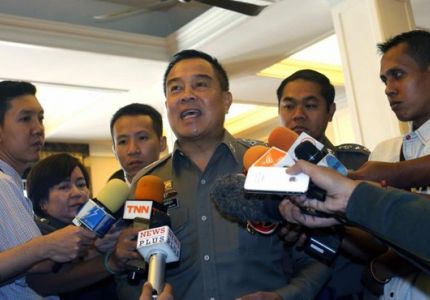
Padang Besar, a powerful southern Thai mayor and an alleged hit man have been arrested and questioned as part of an investigation into a human trafficking ring.
Rohingya News Agency - World Bulletin
A southern Thai mayor has been arrested and questioned as part of an investigation into human trafficking along the border with Malaysia following the discovery of mass migrant graves, local media reported Saturday.
In the last week, 33 bodies of Rohingya and Bangladeshi migrants have been discovered, causing Thailand’s junta chief-cum-prime minister to issue a 10-day ultimatum for authorities to locate and report all human trafficking camps in the south.
Banjong Pongphon, mayor of Padang Besar municipality in Songkhla province, was questioned for seven hours Friday after surrendering to police, The Nation reported.
General Somyot Pumpanmuang, national police chief, said Pongphon and an alleged hit man for a trafficking ring, Suphoj Muensew, were under investigation as to their involvement in trafficking in the area.
The Bangkok Post cited Pumpanmuang as saying that Muensew had been instructed to kill those who impeded the trafficking of people from Myanmar and Bangladesh.
According to General Aek Angsananont, deputy police chief, the ring is believed to have been behind two murders in Padang Besar and Satun province.
He, however, would not specify Pongphon’s link to Supoj.
Arrest warrants have been issued for 36 people – including police officers, local politicians and community leaders -- on human trafficking charges, Angsananont said.
Since the discovery of the gravesites, more than 50 policemen based in the southern provinces of Songkhla, Ranong and Satun -- where smuggling of Rohingya is widespread -- have been transferred to inactive posts.
On Friday, Prime Minister Prayuth Chan-ocha called for a regional summit to discuss the trafficking crisis, saying, “Thailand is only a transit point for smuggling Rohingya.”
Earlier this week, the United Nations High Commission for Refugees reacted to the discovery of the camps by expressing its “deep concern.”
The agency called for “a regional effort to end human trafficking” and “law enforcement measures accompanied by efforts to reduce the need for migrants and refugees to turn to smugglers in the first place.”
The gruesome discovery of the corpses has shocked Thailand, which is under heavy pressure from the U.S. and European Union for its paltry record on human trafficking.
Last year, it was given the lowest possible ranking in a U.S. State Department's human trafficking report, while earlier this month the EU gave Thailand six months to improve efforts in combating illegal fishing by trawlers on which migrants are used in “slave-like conditions.”
Most of the Rohingya who end up in the camps are from Rakhine state in Western Myanmar.
After violent clashes in the summer of 2012 with Buddhist Rakhine, they began to flee en masse to find safety and work in Malaysia and beyond.
At first, they boarded rickety boats controlled by human smugglers -- which sometimes sank during the trip across the Andaman Sea -- but since last year they have been travelling on larger vessels.
Bangladeshis are also increasingly using human smugglers to go to what they see as the economic promise of Malaysia. But some of them -- along with the Rohingya -- are kidnapped and forced to board the boats.
Once arriving near the Thai coast, they are taken by trucks to camps hidden in the jungle and detained until their families pay ransom.
They are then left to attempt to cross the border into Malaysia.
التعليـــقات
Comments published does not reflect the opinion of the agency, but reflect the opinion of their owners

New Agency
Articles
Books
Mailing List
Search











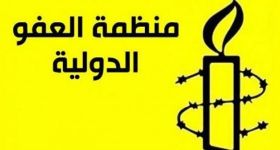











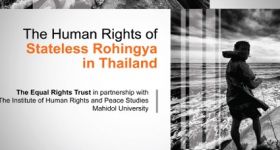








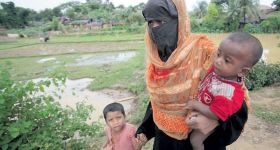









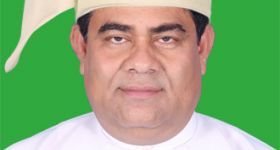

 Thais arrest Myanmar migrants near Malaysian border
Thais arrest Myanmar migrants near Malaysian border








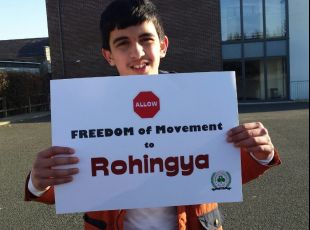
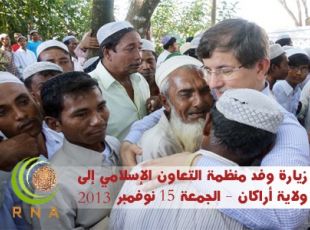
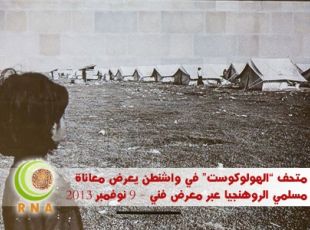





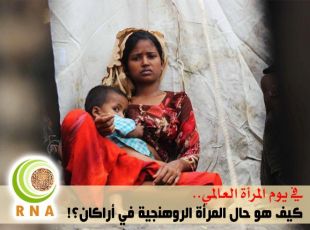


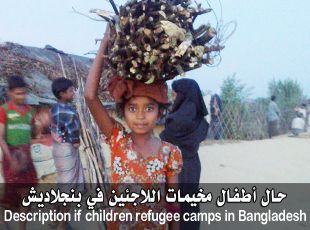














 Report: The Human Rights of Stateless Rohingya in Thailand
Report: The Human Rights of Stateless Rohingya in Thailand

